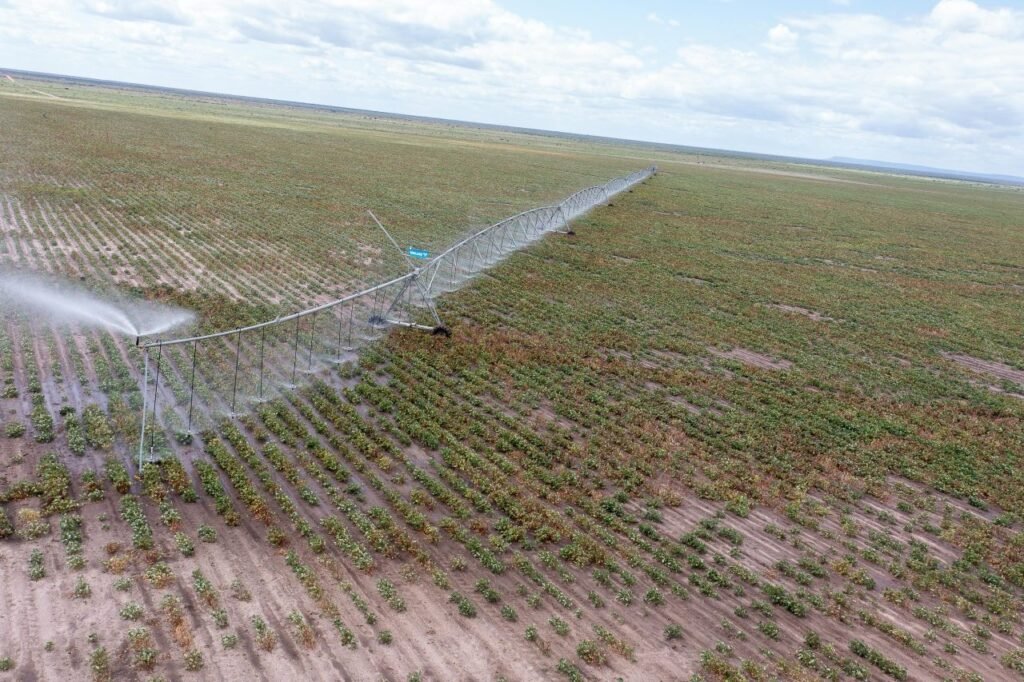The long-awaited Galana Kulalu food security project is now ready for full operationalisation, following the completion of construction works on its siltation basin and canal, President William Ruto has announced.
Construction of key infrastructure for the Sh519.4 million project — including an intake, pump station, inlet canal, reservoir, outlet canal, and off-take reservoir — began two years ago.
The infrastructure, which comprises a 753-metre inlet canal, a 450 million-litre reservoir, a 1,210-metre outlet canal, and a 20 million-litre off-take sump, now appears to be fully complete.
“For a long time, there has been a lot of talk about this project. It has been enough talk; now the work begins,” Ruto said during the inspection of the project’s testing phase on Friday, 16 May.
He added that the irrigation project is designed to optimise water management for enhanced agricultural productivity and will help eradicate the shame of hunger in the country.
“We want to use this project to grow food, create jobs, and ensure we have products for export,” Ruto said, adding that the government is working with the private sector under a Public-Private Partnership to operationalise the project and scale up food production.
Ruto said the Galana Kulalu project will also be used to produce animal feed to support livestock farming across the country.
Kenya and the UAE
This comes at a time when Kenya and the United Arab Emirates have signed a Memorandum of Understanding that will allow companies to invest in food and animal feed production.
A total of 250,000 acres will be brought under irrigation. Of this, 20,000 acres have been allocated to Selu Limited, 50,000 acres to Nyumbani Foundation, and 180,000 acres to Al Dahra of the UAE.
However, to ensure that water from the River Galana is utilised efficiently, a dam must be constructed to guarantee a reliable water supply for the irrigation project.
Later, Ruto inspected the electrification of the Galana Kulalu Food Security Project. The Sh2.9 billion electrification initiative will support sustainable food security and facilitate agro-processing facilities within the irrigation scheme.
Power supply is currently being installed by the Rural Electrification and Renewable Energy Corporation (REREC), with completion expected by 2026.


